Are you looking to establish a solid framework for your digital marketing services? Crafting an effective service agreement is crucial to ensure both you and your clients are on the same page regarding expectations and deliverables. In this article, we'll explore key elements to include in your digital marketing service agreement, such as scope of work, payment terms, and confidentiality clauses. So, let's dive in and discover how you can create a comprehensive agreement that sets the stage for successful partnerships!

Scope of Services
Digital marketing service agreements outline the scope of services provided, which typically includes SEO (Search Engine Optimization), PPC (Pay-Per-Click) advertising, social media management, content creation, email marketing, and analytics reporting. SEO focuses on improving website visibility on search engines like Google by utilizing keywords, backlinking, and on-page optimization techniques to increase organic traffic. PPC involves paid advertising strategies on platforms like Google Ads and Facebook Ads, targeting specific audiences to drive immediate traffic. Social media management encompasses creating and curating content on platforms such as Instagram, LinkedIn, and Twitter to enhance brand presence and engagement. Content creation involves producing high-quality articles, blog posts, graphics, and videos designed to inform and attract the target audience. Email marketing consists of crafting targeted campaigns to nurture leads or inform customers, while analytics reporting monitors campaign performance and metrics to assess ROI. Each service is tailored to align with the client's business goals, ensuring effective communication and measurable results.
Payment Terms
In digital marketing service agreements, payment terms outline the financial responsibilities of both parties involved. Typically, terms specify the total service fee, often based on monthly retainers or project-based pricing, which can vary widely depending on the scope of services--such as search engine optimization (SEO), pay-per-click (PPC) advertising, or content marketing. Payment due dates are crucial, often set at the beginning or end of each month to ensure consistent cash flow, with penalties for late payments--commonly interest fees calculated at a certain percentage per month, like 1.5%. Additionally, payment methods may include options such as credit cards, bank transfers, or digital wallets, each with unique processing times ranging from instant to several days. Some agreements include provisions for a deposit upfront, typically 20-50% of the total fee, ensuring commitment from both parties. Clear terms regarding reimbursements for unavoidable expenses like third-party ad spend may also be detailed, emphasizing transparency and accountability throughout the partnership.
Performance Metrics
Digital marketing service agreements typically incorporate performance metrics to evaluate the effectiveness of campaigns. Key performance indicators (KPIs) may include metrics such as conversion rates, which indicate the percentage of visitors taking desired actions, typically ranging from 1% to 3% for many industries. Impressions measure how many times ads are displayed, often reaching thousands or millions, depending on campaign reach. Click-through rates (CTR) reveal engagement levels, with average rates around 2% to 5% for effective campaigns. Customer acquisition cost (CAC) illustrates the total expense incurred to gain a new customer, ideally below the customer's lifetime value (CLV), which should exceed 3:1 for sustainable growth. Monthly reporting intervals allow for consistent evaluation against targets, enabling adjustments to strategies in response to performance trends.
Confidentiality Clause
Confidentiality clauses play a crucial role in digital marketing service agreements, ensuring that sensitive information remains protected. Client data, including proprietary marketing strategies, customer lists, and other intellectual property, must be kept confidential to prevent unauthorized access and misuse. This clause typically outlines the obligations of both parties regarding the handling of confidential information and defines what constitutes confidential material. Violations can result in serious legal repercussions, such as monetary damages or injunctions. Furthermore, confidentiality extends beyond the term of the agreement, emphasizing the importance of trust and integrity in the client-service provider relationship. Implementing a robust confidentiality clause enhances security and fosters a collaborative environment, vital for achieving successful digital marketing outcomes.
Termination Conditions
Termination conditions in a digital marketing service agreement outline the specific circumstances under which either party can legally terminate the contract. Termination may occur due to failure to deliver on agreed services, including the implementation of strategies outlined in the proposal submitted on January 15, 2023, or failure to meet milestone deadlines such as the quarterly review set for April 1, 2023. Additionally, either party may terminate the agreement with a written notice of 30 days if issues related to non-payment arise, reflecting the terms discussed during the initial negotiations in December 2022. Other conditions include significant changes in company structure, such as mergers or acquisitions, which could impact service delivery, as detailed in the original agreement. All termination conditions should be documented to minimize disputes and ensure compliance with legal obligations.
Letter Template For Digital Marketing Service Agreement Samples
Letter template of digital marketing service memorandum of understanding
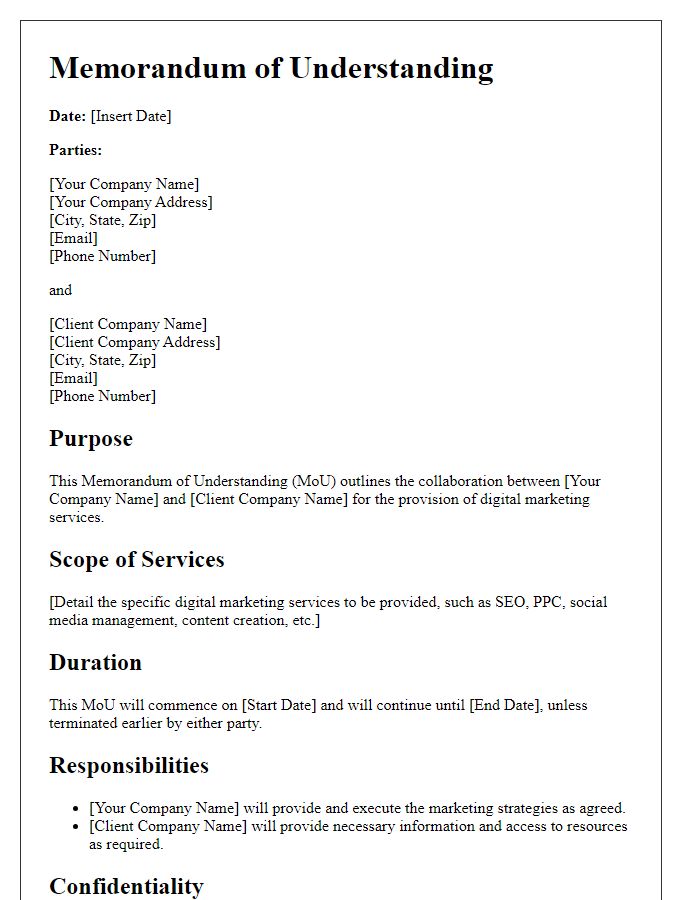

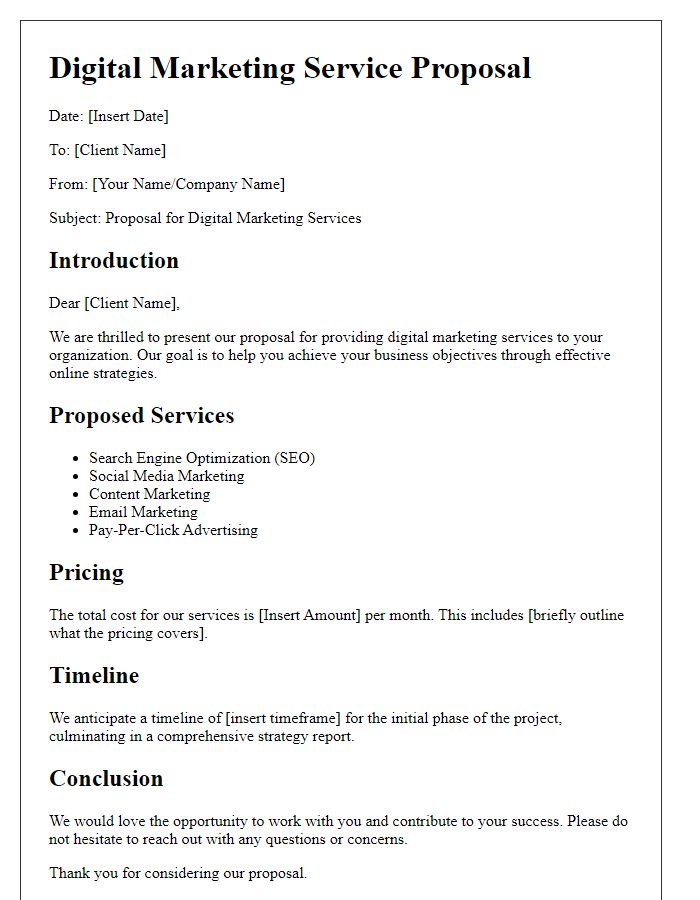
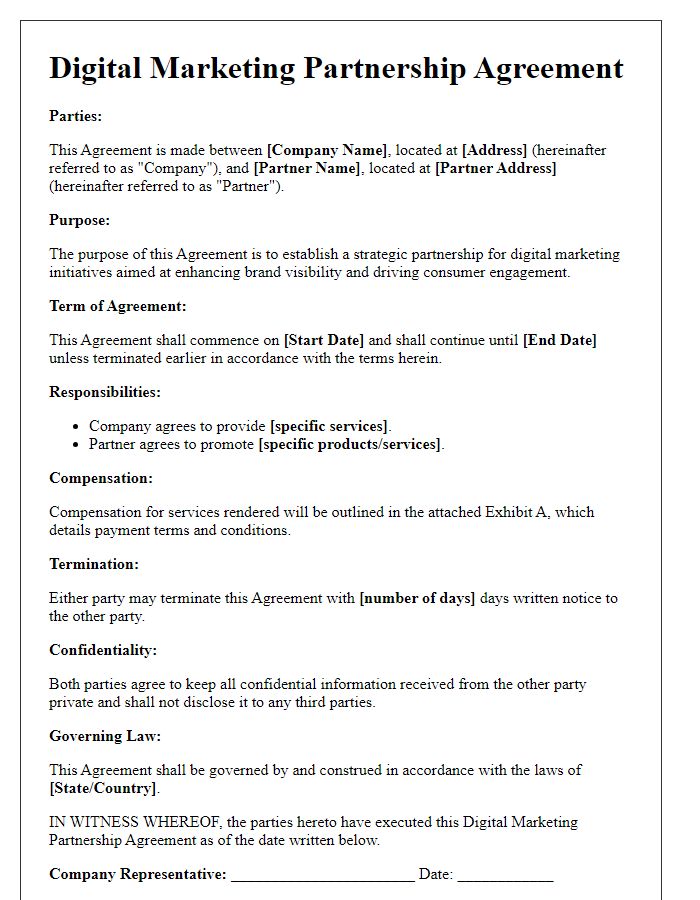
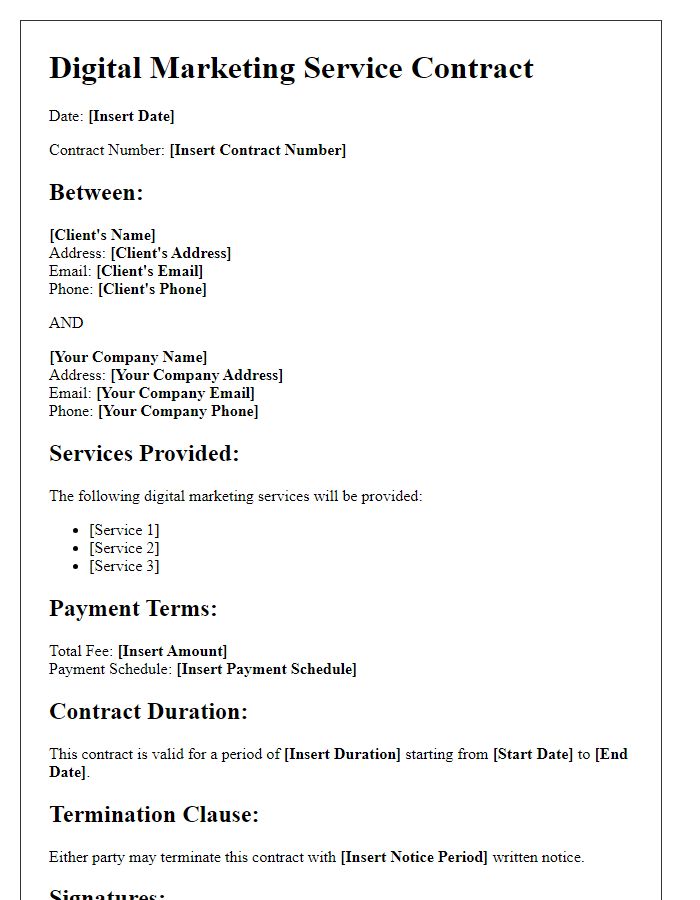
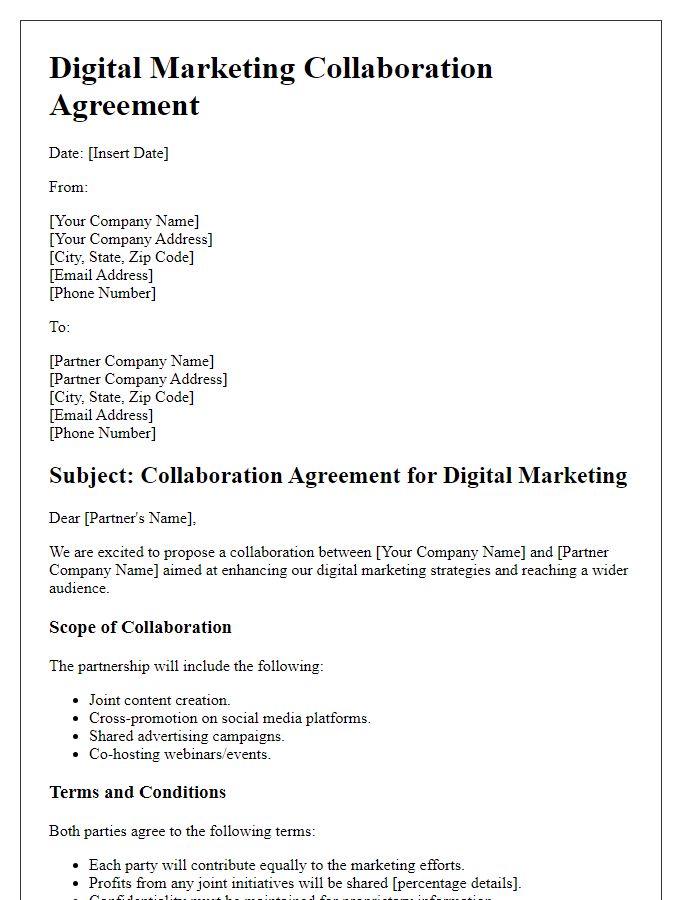
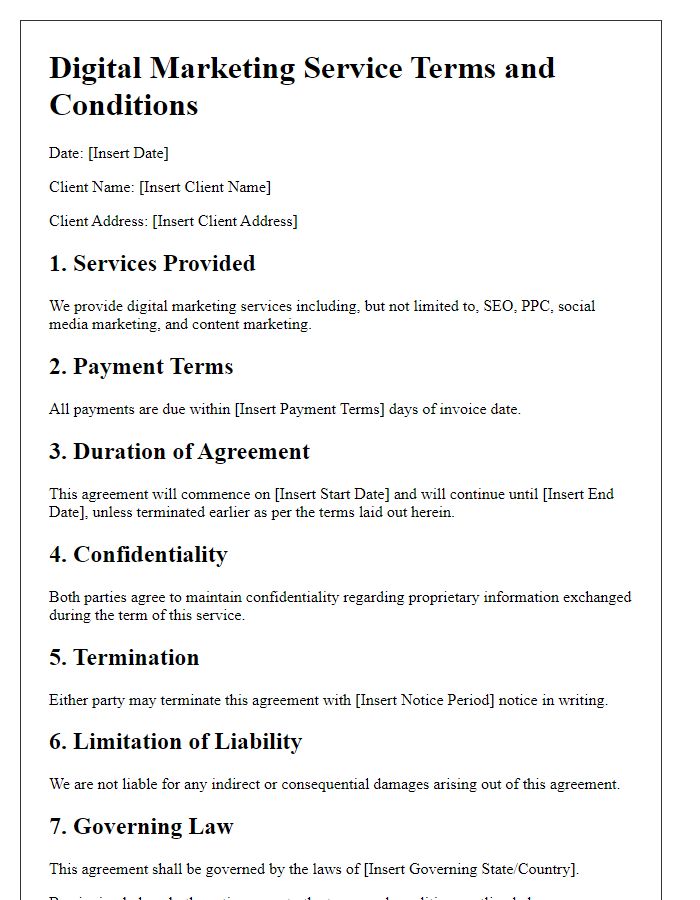
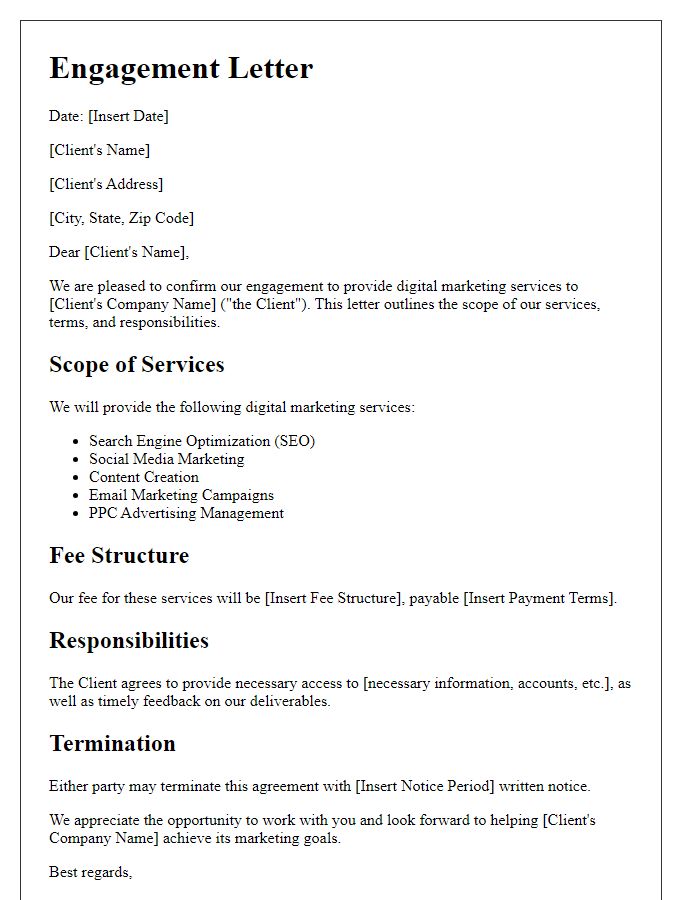
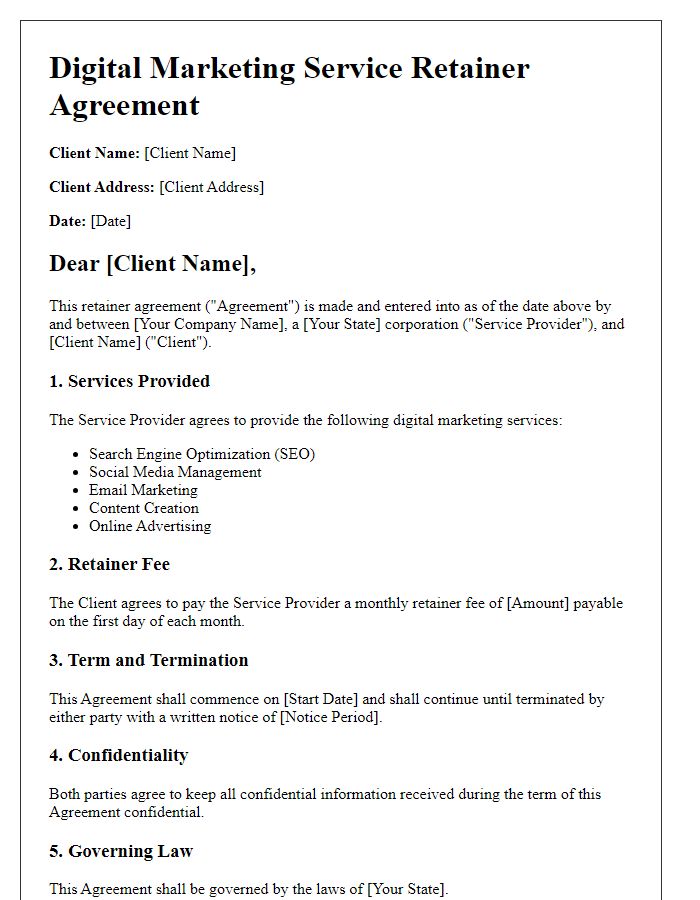
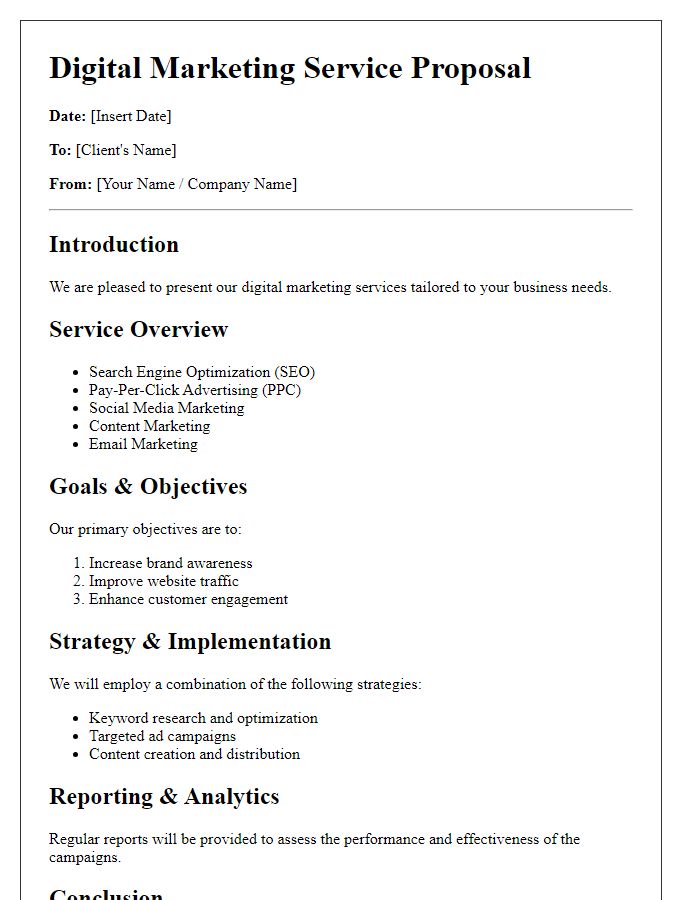
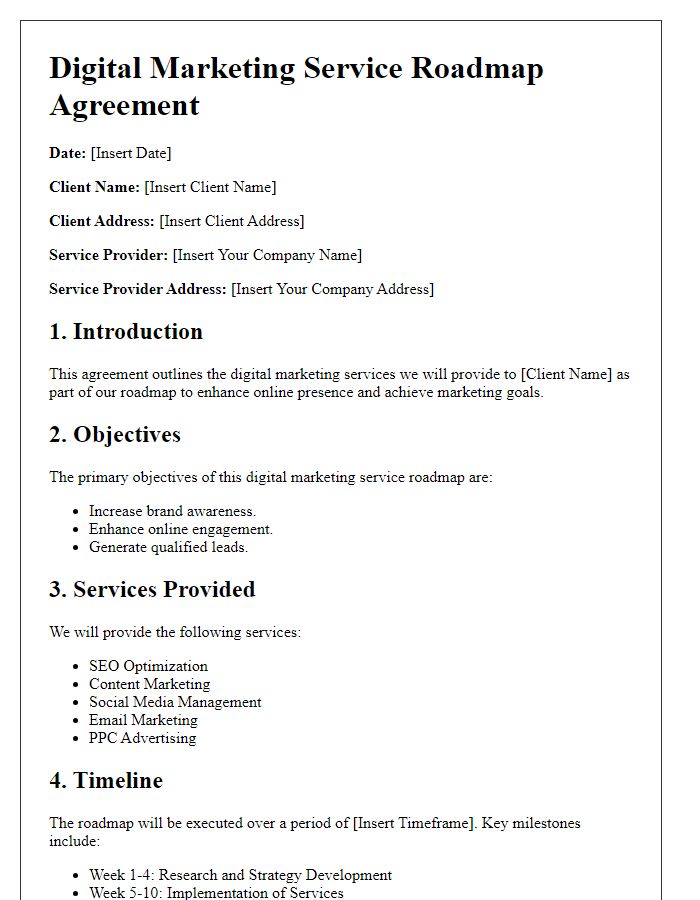


Comments